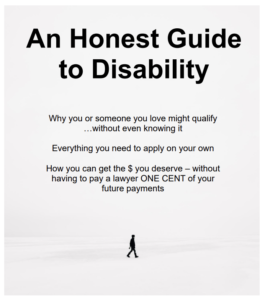 Getting Your SSDI Application Right the First Time
Getting Your SSDI Application Right the First Time
Filling out an SSDI application for the first time can be an incredibly stressful experience. As a Memphis SSDI attorney, I’ve seen hundreds and hundreds of people struggle not only to get it right but to understand what went wrong after the fact.
Fortunately, we offer a number of resources to help you apply for SSDI and make your case as strong as possible the first time around.
The Problem with Applications Right Now
These days, it’s unusual to get SSDI through your initial application. For a variety of reasons, the SSA denies the majority of claims on the first try. However, they also usually don’t let you know exactly why they rejected your claim.
This can lead to a frustrating back-and-forth where you wonder what you got wrong and how to fix it. Some people will apply over and over again without ever addressing the reason for their denial.
In addition, a number of people complain the application is more complicated than it needs to be. As an attorney, I can say I’ve seen many people confused by the questions or unsure of what they need to include. This creates a situation where people depend on legal help to get approved.
We’re more than happy to help our clients get SSDI when you need it, but in my experience there’s a lot you can do to make your application strong on the first try.
 Resources to Prepare a Good Application
Resources to Prepare a Good Application
When writing your application for Social Security Disability, you should go into it understanding the most common reasons for denial.
We’ve written extensively about all the reasons the SSA might deny your claim. If you understand these well, it can help you avoid the most common pitfalls that keep people from getting the benefits they need.
In addition, we’ve published a popular free report called An Honest Guide to Disability. In this report, we guide you through what it takes to qualify for SSDI, how to prove this in your initial application, and what to include to make sure the SSA has a strong understanding of your situation.
So often, a successful claim boils down to storytelling. You have to show that you have a disability, how it’s impacted your ability to earn an income, and why you need (and qualify for) SSDI.
Eventually, technology may make this stage of the process easier. Already, some startups want to help automate the application so people can do it more easily from their own homes. Artificial intelligence and digitized medical records may also streamline this process in the next few years.
 Filling Out An SSDI Application for Complicated Cases
Filling Out An SSDI Application for Complicated Cases
In some cases, all of this great advice and all the best guides may not help you get approval on the first round.
For one, there are plenty of examples of harder-to-prove disabilities. For example, in recent years, many people have suffered from long Covid with a variety of associated side effects. But the medical establishment has been slow to catch up and doesn’t understand this disease well. As a result, many people suffering from long Covid have struggled to get SSDI, especially on their first application.
In addition, plenty of applicants don’t have the technological savvy to access their medical records easily or navigate the SSA website. They may also struggle with the dense language in the application and in their medical records.
And then there’s just the simple fact that the SSA is understaffed and can make mistakes.
Thankfully, if you get denied on the first try, you have the opportunity to appeal. You have exactly 60 days from your denial to file your appeal, and that’s when you definitely want to get a lawyer.
 How to Appeal Successfully
How to Appeal Successfully
During the appeals process, you have the opportunity to figure out what went wrong in your initial application and fix it. To do this, you should really work with a trusted SSDI attorney.
Without legal help, you run the risk of repeating the same mistakes over and over again. With wait times being so long (often many months), you don’t want to risk spending years in the application stage.
In addition, the appeals process requires you attend a hearing, where you will present your claim in front of a judge. This is a very straightforward process and doesn’t have to be scary. But it’s best to have a lawyer help when your case involves the courts.
Lastly, you can have a great SSDI attorney without having to worry about a high price. The courts actually limit the attorneys fees by law. We only get paid if we win your case for you, and even then it’s only a small fraction of your past-due benefits. Moving forward, you keep every dollar of your future SSDI checks.
So there’s nothing to lose and everything to gain. To get started, call us today at 901-327-2100 or contact us online.
Remember, you only have 60 days to appeal. If you’ve reached that stage, we’re excited to help you get the benefits you need.
